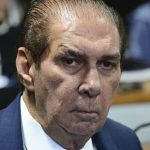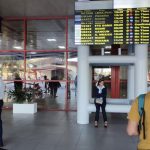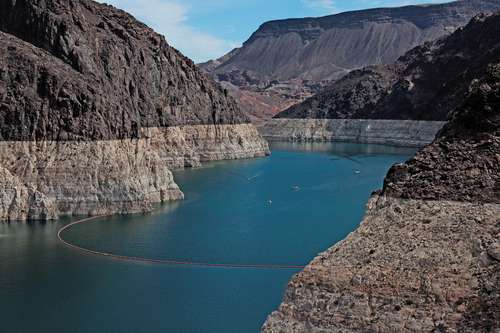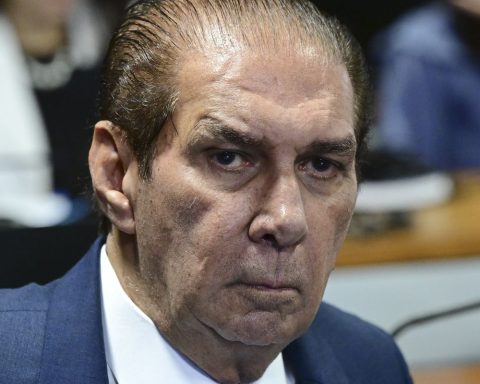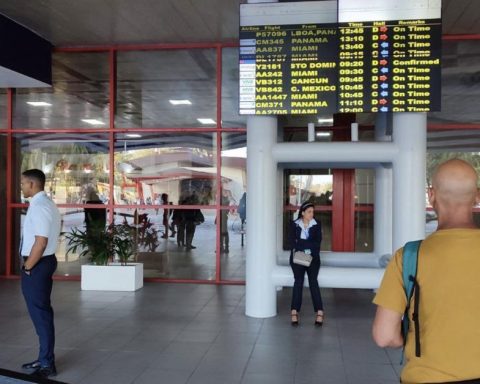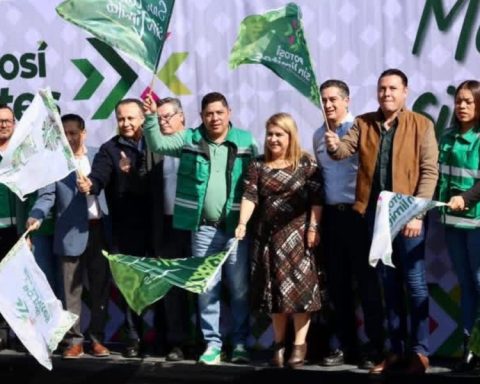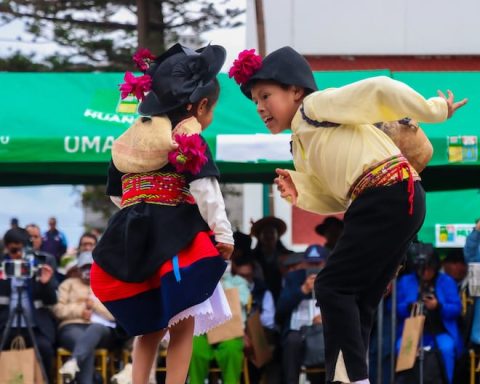The de facto police state imposed on Nicaraguans by the regime of Daniel Ortega and Rosario Murillo has undermined their confidence in their ability to achieve political change through elections, and has aggravated their fear of talking about political issues, even with their family. , and notably longing to recover rights such as free expression and other civil liberties, even above the improvement in economic conditions or access to fundamental services.
These are the findings of the study Political Culture of Democracy in Nicaragua and the Americas 2021: Taking the pulse of democracydeveloped by the AmericasBarometer, a study sponsored by the Latin American Public Opinion Project (LAPOP) and Vanderbilt University.
The chapter on Nicaragua focused on examining corruption, migration, and political freedoms and the revaluation of democracy, given the context of the deterioration of the civil liberties system in the country since 2018.
The field work for the collection of this data in Nicaragua was carried out between June 3 and August 22, 2021, through 2,997 telephone interviews conducted by the pollster Borge y Asociados, therefore the impact of the electoral farce of November 7 and repressive events that occurred in 2022, such as the hunt for NGOs, the closure and confiscation of media outlets, and the persecution and imprisonment of priests of the Catholic Church.
Nicaragua lives a revaluation of democracy
Jose Miguel CruzDirector of Research at the Kimberly Green Latin American and Caribbean Center of Florida International University, and who was in charge of presenting the study, said that in Nicaragua what he called “revaluation of democracy” is being registered as a preferable system of Government in the country, due to the evident lack of civic rights due to the police state imposed by the dictatorship.
One of the most relevant findings is the persistent fear of Nicaraguans (64%) to discuss political issues, even with relatives.
The study determined that this percentage decreased compared to 2019, when it was established that until 78% of those consulted expressed fear in addressing these issues.
The study also revealed that a 70% of respondents He said he preferred to recover his civil rights such as freedom of expression and politics, over a repressive and totalitarian system that guarantees economic improvements and access to basic services.
7 out of 10 prefer a pro-freedom system
This represents a remarkable growth in relation to the results of this same study when were introduced last yearand it was recorded that a 55% of Nicaraguans respondents said they prefer greater democratic freedoms than economic benefits.
“After several years of perceiving a downward trend in the favorable perception of democracy as the preferred government regime, what we are seeing in this latest survey is how the indicators make it clear that democracy is once again considered the best form of government. of government”, analyzed the researcher Cruz.
“This must be combined with the fact that seven out of ten Nicaraguans expressed their preference for a system that guarantees freedoms, rather than a system that guarantees economic stability. This is remarkable, because in the past the trend in Nicaragua was a greater concern towards economic issues, over political issues”, he added.
The study also highlights that satisfaction with democracy in Nicaragua is at its lowest point since these analyzes were carried out, registering only one 41%, when in 2004 this point reached 54%, being its highest peak in 2016, with 62%.
Elections no longer represents a symbol of change
The discouragement is such that in the same specialized survey he incorporated as a question, “What is the way you think you can have the most influence to change things?”, and its results established that elections are no longer a reliable mechanism for achieving political change.
Single 21% of those consulted expressed that by means of the vote favorable political changes could be achieved, 9% responded that through street protestbut up to a 50% answered that in Nicaragua it is not possible to influence to achieve such changes.
In contrast, the study recorded that to this same question, but in 2008, 52% of respondents answered that the vote was the best route to achieve these changes, 16% said that through street protest and only one 11%rHe replied that a change was not possible.
“Before, people saw elections as a useful and important mechanism to change the direction of the country. Not anymore, and it’s clearly unfortunate. That has to do with this revaluation of democracy that we have talked about, ”Cruz insisted.
The study also highlighted that only one 39% of those consulted they expressed “feel that their basic rights are protected” and this same percentage was the one that was registered when asked if they considered that in 2021 there was an improvement in the protection of the fundamental rights of Nicaraguans.
More than half of the country wants to migrate
The study also referred to the increase in the migratory flow from Nicaragua, mainly to the United Statesmainly motivated by the deterioration of the economic situation and the democratic system in the country since the massacre to the citizen protests of 2018.
The results indicate that between 2019 (30%) Y 2021 (52%)the intentions of Nicaraguans to migrate skyrocketed in 22 percentage points. This places Nicaragua as the fourth country in Latin America with the highest intention to migrate, only behind Haiti, Jamaica and Honduras.
53% of those consulted expressed that their main reason for leaving Nicaragua was the lack of economic opportunities, 21% claimed lack of educational opportunities and others twenty-one% He replied that he was doing it for other reasons.
However, the researcher Cruz affirmed that the political crisis is directly related as one of the main reasons argued by Nicaraguans to undertake the search for opportunities in another country.
“In Nicaragua, traditionally, the intentions to migrate had never exceeded a 33%, since we do these studies. The significant jump between 2019 and 2021 in the intentions to migrate is very relevant. It is more than half of the population that wants to migrate,” said Cruz.
“Although most argue that they did it in search of better economic opportunities, there was a twenty-one% that he did not want to specify what were the reasons why he wanted to leave. Without wanting to fall into speculation, but it is very likely that there are other reasons here more linked to the political situation, ”she added.
“Equally, it can be said that many citizens alleged economic reasons, which is a more neutral response than saying political reasons. From my particular point of view, I would think that here there was a bit of people protecting themselves, when it is clear how the political crisis covers the Nicaraguan dynamic in general”, he pointed out.
At the regional level, the 2021 AmericasBarometer study covered 22 countries in the Latin American region, with an average of 3,000 interviews in each nation.







